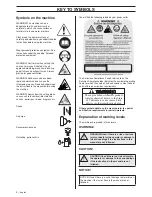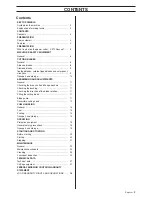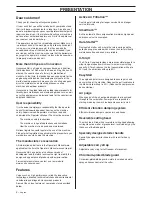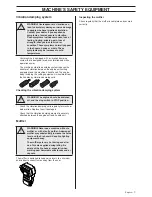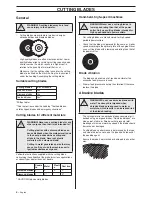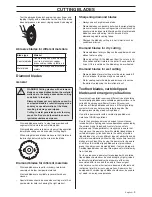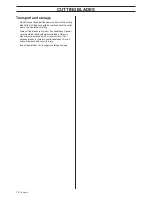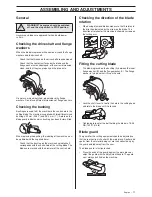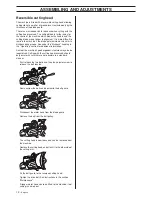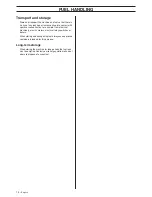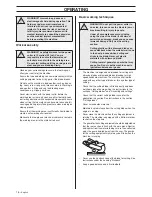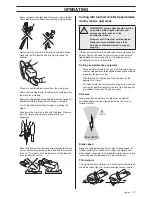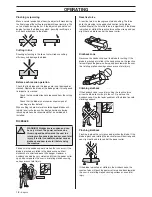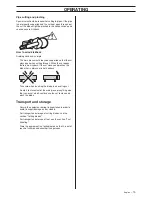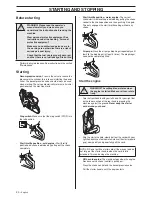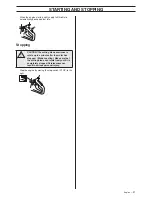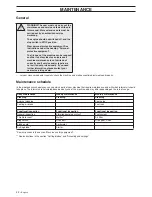
8 –
English
CUTTING BLADES
General
•
Cutting blades are available in two basic designs;
abrasive baldes and diamond blades.
•
High-quality blades are often most economical. Lower
quality blades often have inferior cutting capacity and a
shorter service life, which results in a higher cost in
relation to the quantity of material that is cut.
•
Make sure that the right bushing is used for the cutting
blade to be fitted on the machine. See the instructions
under the heading Assembling the cutting blade.
Suitable cutting blades
*Without water
**See instructions under the heading "Toothed blades,
carbide tipped blades and emergency situations".
Cutting blades for different materials
Follow the instructions supplied with the cutting blade
concerning the suitability of the blade for various applications,
or consult your dealer in case of doubts.
* CAUTION! Only specialty blades.
Hand-held, high-speed machines
•
Our cutting blades are manufactured for high-speed,
portable power cutters.
•
Check that the blade is approved for the same or higher
speed according to the aproval plate of the engine. Never
use a cutting blade with a lower speed rating than that of
the power cutter.
Blade vibration
•
The blade can become out-of-round and vibrate if an
excessive feed pressure is used.
•
A lower feed pressure can stop the vibration. Otherwise
replace the blade.
Abrasive blades
•
The cutting material on abrasive blades consists of grit
bonded using an organic binder. ”Reinforced blades” are
made up of a fabric or fibre base that prevents total
breakage at maximum working speed if the blade should
be cracked or damaged.
•
A cutting blade’s performance is determined by the type
and size of abrasive corn, and the type and hardness of
the bonding agent.
•
Ensure the blade it not cracked or damaged in any other
way.
!
WARNING! A cutting blade may burst and
cause injury to the operator.
Cutting blades
K 970 Rescue
Abrasive blades
Yes*
Diamond blades
Yes
Toothed blades
Yes**
!
WARNING! Never use a cutting blade for any
other purpose than that it was intended for.
Cutting plastics with a diamond blade can
cause kickback when the material melts due
to the heat produced when cutting and
sticks to the blade. Never cut plastic
materials with a diamond blade!
Cutting in metal generates sparks that may
cause fire. Do not use the machine near to
ignitable substances or gases.
Concre
te
Metal
Plasti
c
Cast iron
Abrasive blades
X
X
X
X
Diamond blades
X
X*
X*
!
WARNING! Never use a cutting blade at a
lower speed rating than that of the power
cutter. Only use cutting blades intended for
high speed handheld power cutters.
!
WARNING! Do not use abrasive blades with
water. The strength is impaired when
abrasive blades are exposed to water or
moisture, which results in an increased risk
of the blade breaking.


